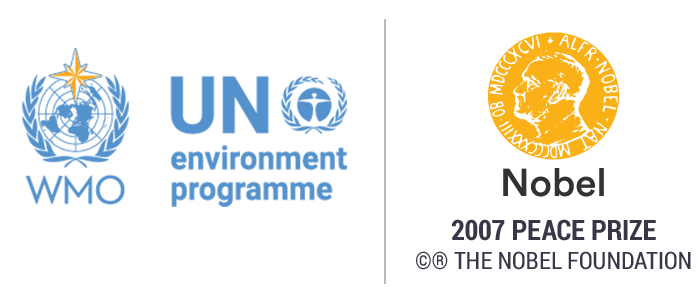
Through its assessments, the IPCC determines the state of knowledge on climate change. It identifies where there is agreement in the scientific community on topics related to climate change, and where further research is needed. The reports are drafted and reviewed in several stages, thus guaranteeing objectivity and transparency. The IPCC does not conduct its own research. IPCC reports are neutral, policy-relevant but not policy-prescriptive. The assessment reports are a key input into the international negotiations to tackle climate change. Created by the United Nations Environment Programme (UN Environment) and the World Meteorological Organization (WMO) in 1988, the IPCC has 195 Member countries. In the same year, the UN General Assembly endorsed the action by WMO and UNEP in jointly establishing the IPCC.
The main activity of the IPCC is the preparation of reports assessing the state of knowledge of climate change. These include assessment reports, special reports and methodology reports. To deliver this work programme, the IPCC holds meetings of its government representatives, convening as plenary sessions of the Panel or IPCC Working Groups to approve, adopt and accept reports. Plenary Sessions of the IPCC also determine the IPCC work programme, and other business including its budget and outlines of reports. The IPCC Bureau meets regularly to provide guidance to the Panel on scientific and technical aspects of its work. The IPCC organizes scoping meetings of experts and meetings of lead authors to prepare reports. It organizes expert meetings and workshops on various topics to support its work programme, and publishes the proceedings of these meetings. To communicate its findings and explain its work, the IPCC takes part in outreach activities organized by the IPCC or hosted by other organizations, and provides speakers to other conferences. More information on sessions of the IPCC, its Working Groups and the Bureau can be found in the Documentation section.
IPCC assessments and special reports are prepared by three Working Groups, each looking at a different aspect of the science related to climate change: Working Group I (The Physical Science Basis), Working Group II (Impacts, Adaptation and Vulnerability), and Working Group III (Mitigation of Climate Change). The IPCC also has a Task Force on National Greenhouse Gas Inventories, whose main objective is to develop and refine a methodology for the calculation and reporting of national greenhouse gas emissions and removals. The Working Groups and Task Force handle the preparation of reports, selecting and managing the experts that work on them as authors. The activities of each Working Group and the Task Force are supported by their Technical Support Units (TSU).
The IPCC Working Group I aims at assessing the physical scientific basis of the climate system and climate change.
The IPCC Working Group II assesses the vulnerability of socio-economic and natural systems to climate change, negative and positive consequences …
The IPCC Working Group III (WG III) assesses options for mitigating climate change through limiting or preventing greenhouse gas emissions …